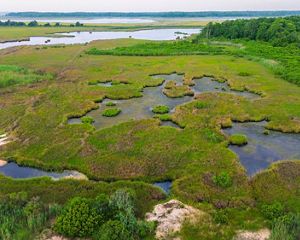Delaware Policy & Government Relations
Securing a sustainable future for people and nature in Delaware.
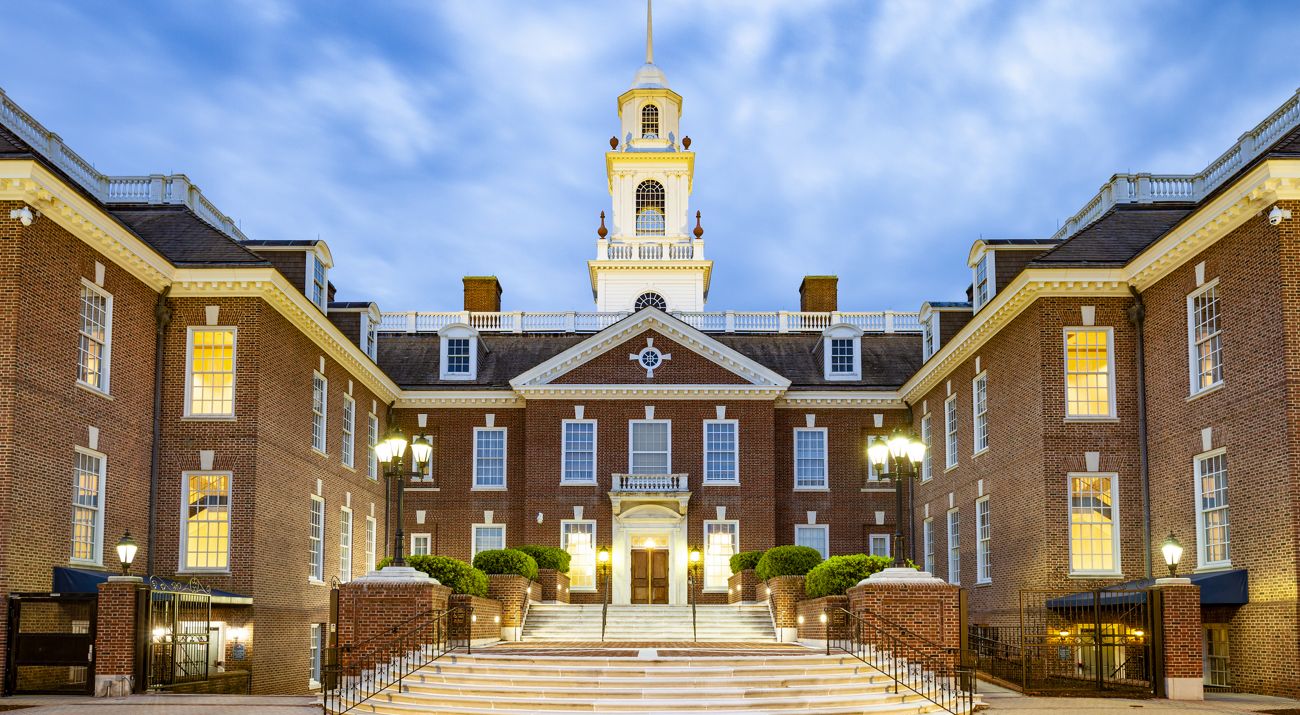
Check out our Advocacy Spotlight!
Each month we highlight thought leaders & newsworthy developments in Delaware policy.
Check out this month's spotlightThe Nature Conservancy in Delaware is committed to creating a world where people and nature thrive. We apply the best available science to protect and restore our lands and waters. Working together, we can advocate for policies that address the causes and impacts of climate change, help our cities become more sustainable, protect natural and human communities and create opportunities for people to connect with nature. This work has never been more urgent.
We develop legislative priorities at a city, county, state and federal level as we advocate for policy solutions that create equitable outcomes for people and the planet.
2025 Legislative Priorities
As the lowest mean-lying state in the country, Delaware is facing enormous challenges that threaten both human and natural communities, including an estimated 9-23 inches of sea-level rise by 2050 and up to five feet by 2100. We must act now.
TNC is laser-focused on addressing climate change and advancing environmental progress in Delaware. Engaging with a broad group of partners, including government agencies, elected officials, nonprofits and academic institutions, TNC will:
-
Work with partners to advance coastal resilience and climate adaptation strategies including conserving additional lands, facilitating marsh migration as sea levels rise, exploring new agricultural easement strategies, advocating for public policy changes and restoring critical habitats for our iconic fish, birds and wildlife.
-
Create a state freshwater wetlands protection program following the U.S. Supreme Court Sackett decision, which significantly weakened federal wetlands protections. Learn More about the Sackett Decision
To learn more about how you can help support TNC’s 2025 policy priorities, contact Emily Knearl, Delaware government relations director, at emily.knearl@tnc.org.
In the News
Recent Delaware conservation news from The Nature Conservancy
-

Rare bird detected at The Nature Conservancy’s Milford Neck Preserve
A recent survey found evidence of eight rare waterbirds, including the federally threatened black rail, in the Kent County preserve’s coastal marshes. Read More
-
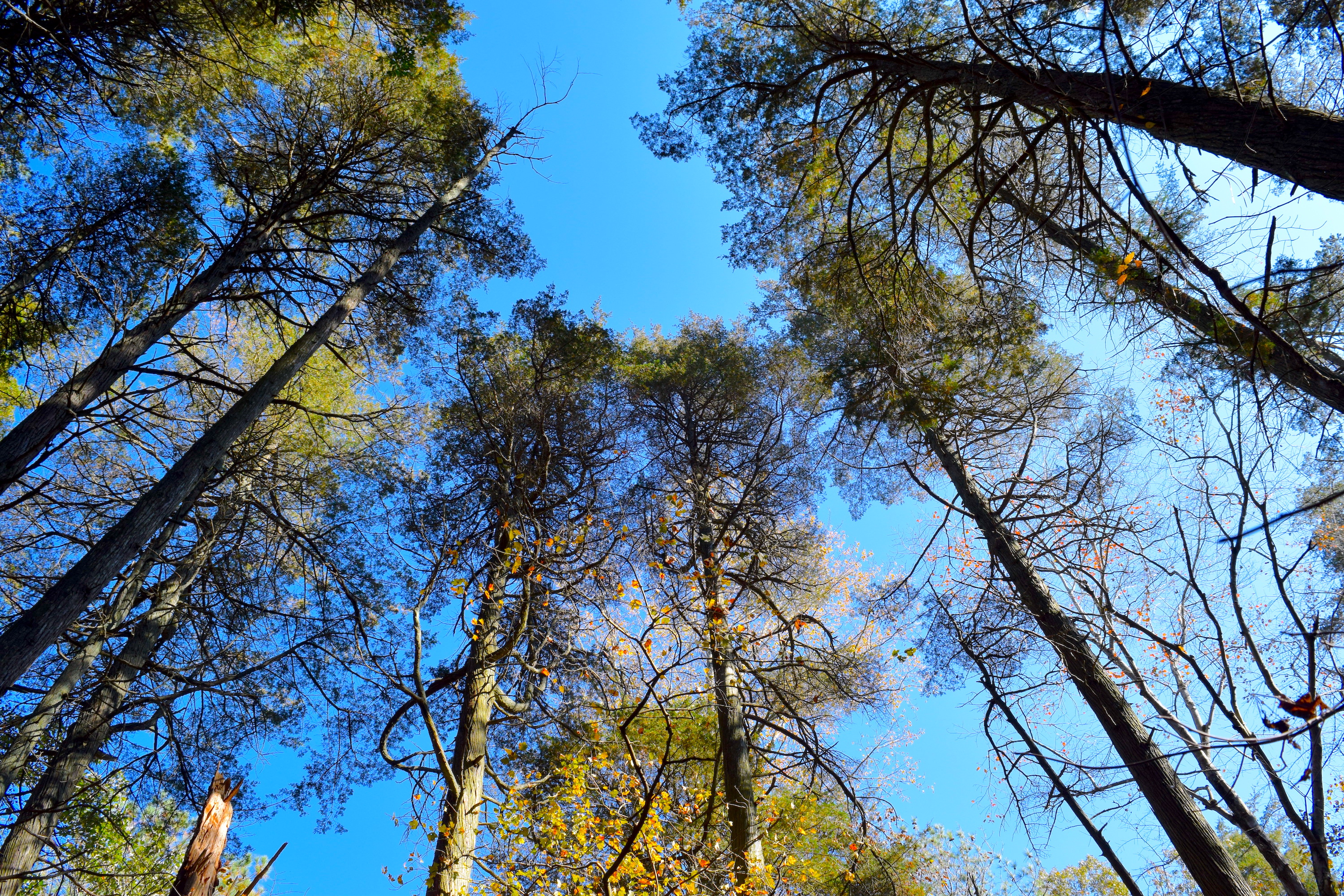
Delaware’s Largest Atlantic White Cedar Discovered at TNC Preserve
The Nature Conservancy recently announced Delaware’s largest Atlantic white cedar tree can be found at Ponders Tract, a public trail system spanning more than 900 acres within TNC’s Pemberton Forest Preserve. Read More
-
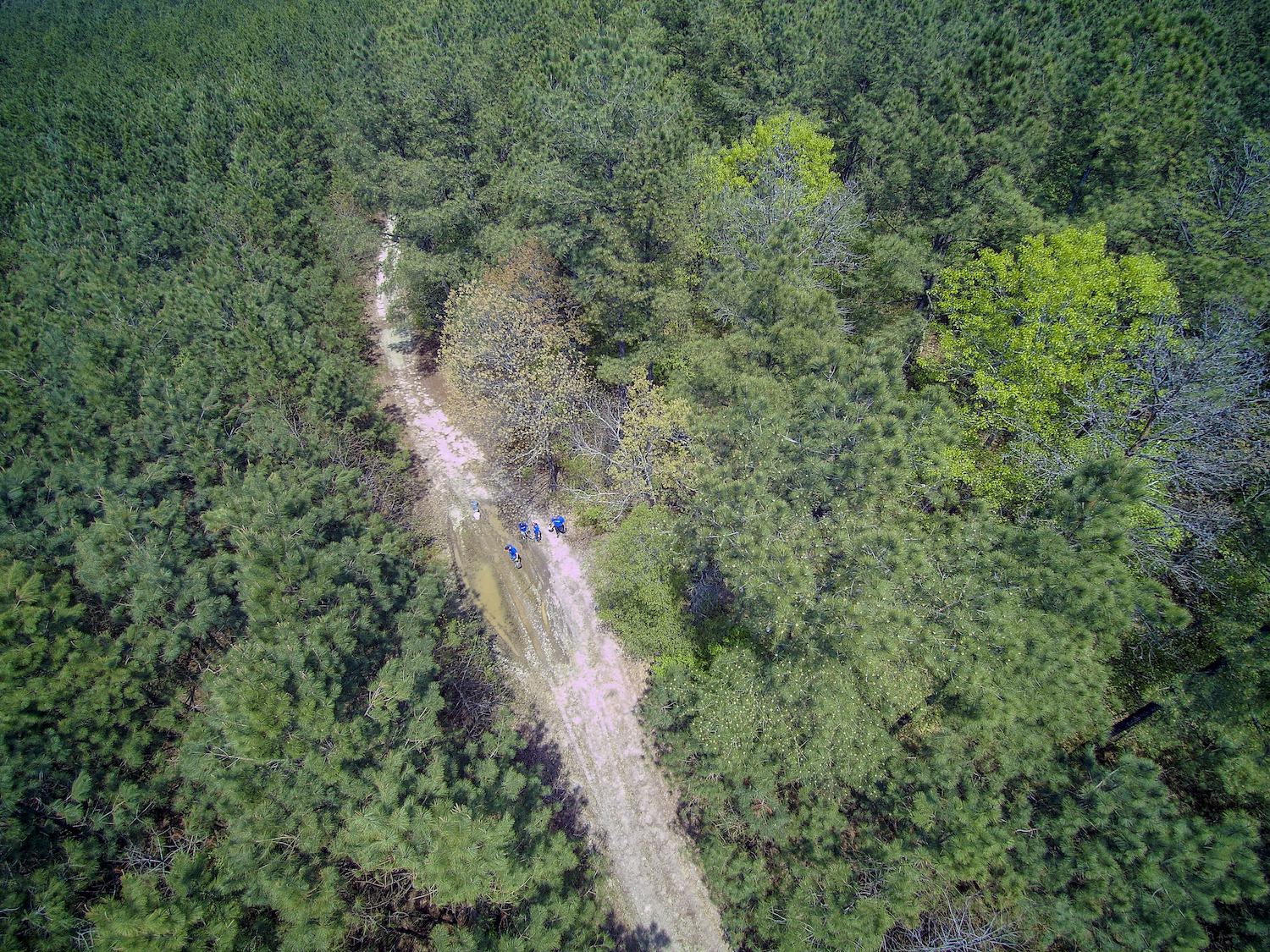
New Acres Protected!
We are excited to announce that we have acquired 7.5 acres in Milton, Delaware to expand our Ponders Tract at Pemberton Forest Preserve. The acquisition will protect the land from future development and allow more room for nature to thrive. Read More
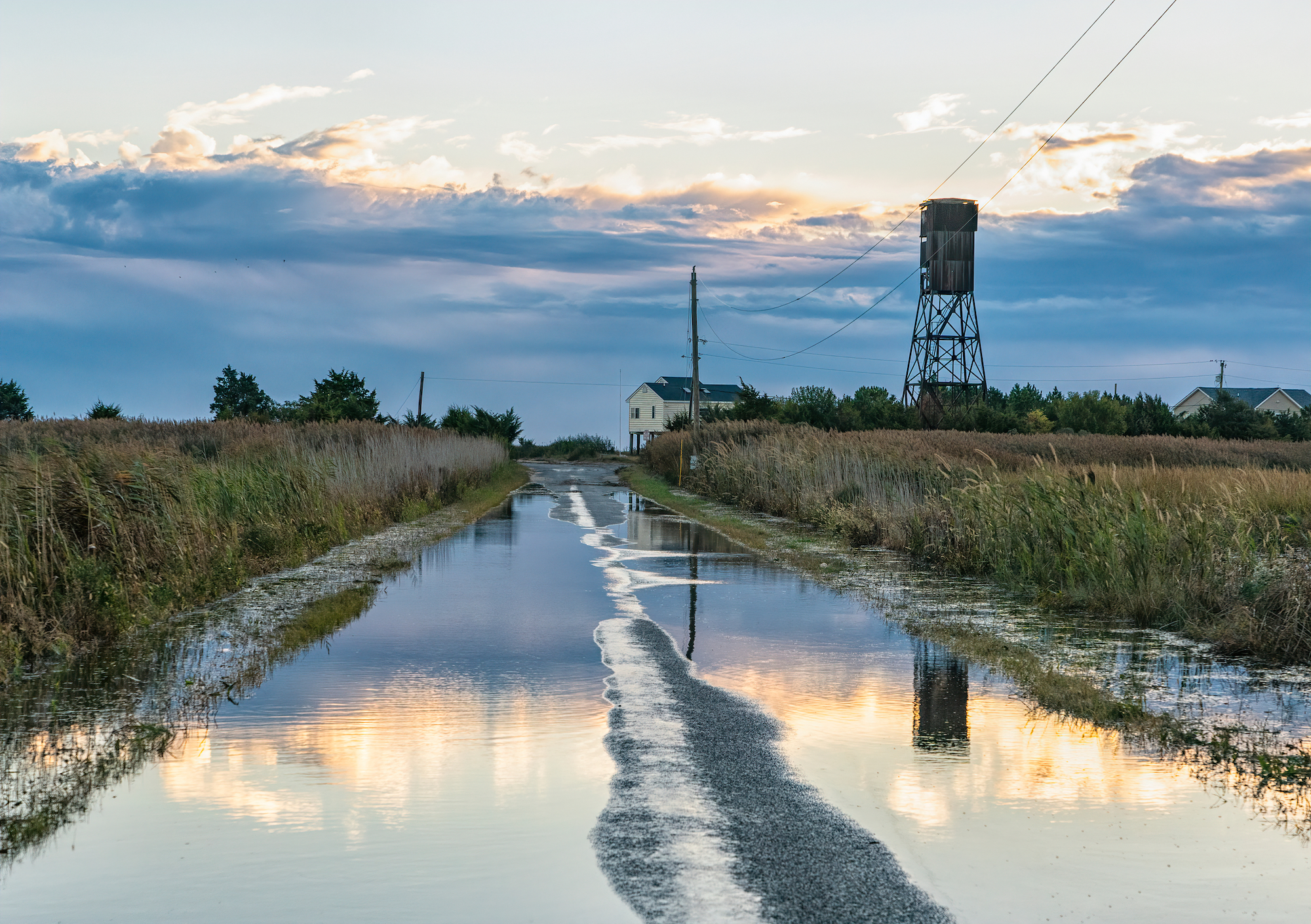
Climate Resiliency
Delaware faces significant challenges from climate change and rising waters. The state’s three counties directly influence how climate change will impact human and natural communities with their land use and planning decisions.
Climate change is already impacting the First State, and years of aggressive development means we are losing our vital natural resources. We are feeling the impacts of increased flooding, rising temperatures and more frequent and severe rain events. These growing challenges are stressing government and private infrastructure, threatening human and natural communities and overburdening our local governments. We must work together to build more capacity, strengthen coordination, support overburdened communities and increase available resources to fund programs and projects that build resilience.
TNC's staff works locally with communities, partners and elected officials throughout Delaware to identify opportunities to deploy resources and funding, such as those made available through federal legislation such as the Infrastructure Investment & Jobs Act and the Inflation Reduction Act.
Additionally, our Oceans and Coasts program focuses on protecting and maintaining the health of the Delaware Bayshore, which provides critical habitat for numerous economically and recreationally important marine species as well as migratory birds and native plants.
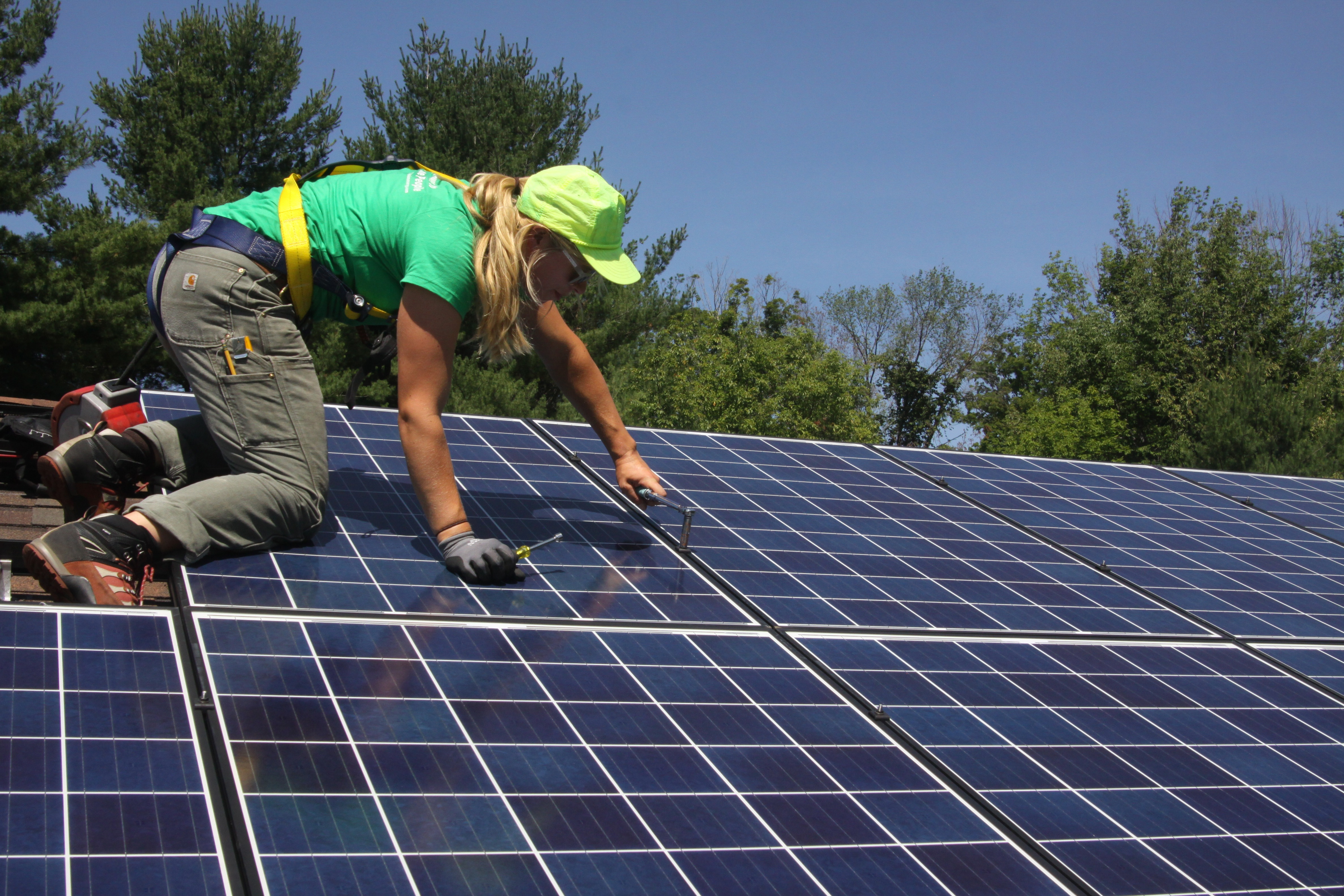
Clean Energy
Climate change caused by the burning of fossil fuels is the gravest threat to healthy lands, waters, wildlife and people. Reducing greenhouse gas emissions to limit global warming to below 1.5° Celsius is an organizational priority for TNC across the globe and right here at home in Delaware.
This goal cannot be achieved without a rapid transition to a clean energy economy. TNC advances clean energy projects and policies that reduce emissions and benefit the environment where they can, including the deployment of wind and solar energy and broader accessibility of electric vehicles and charging infrastructure.
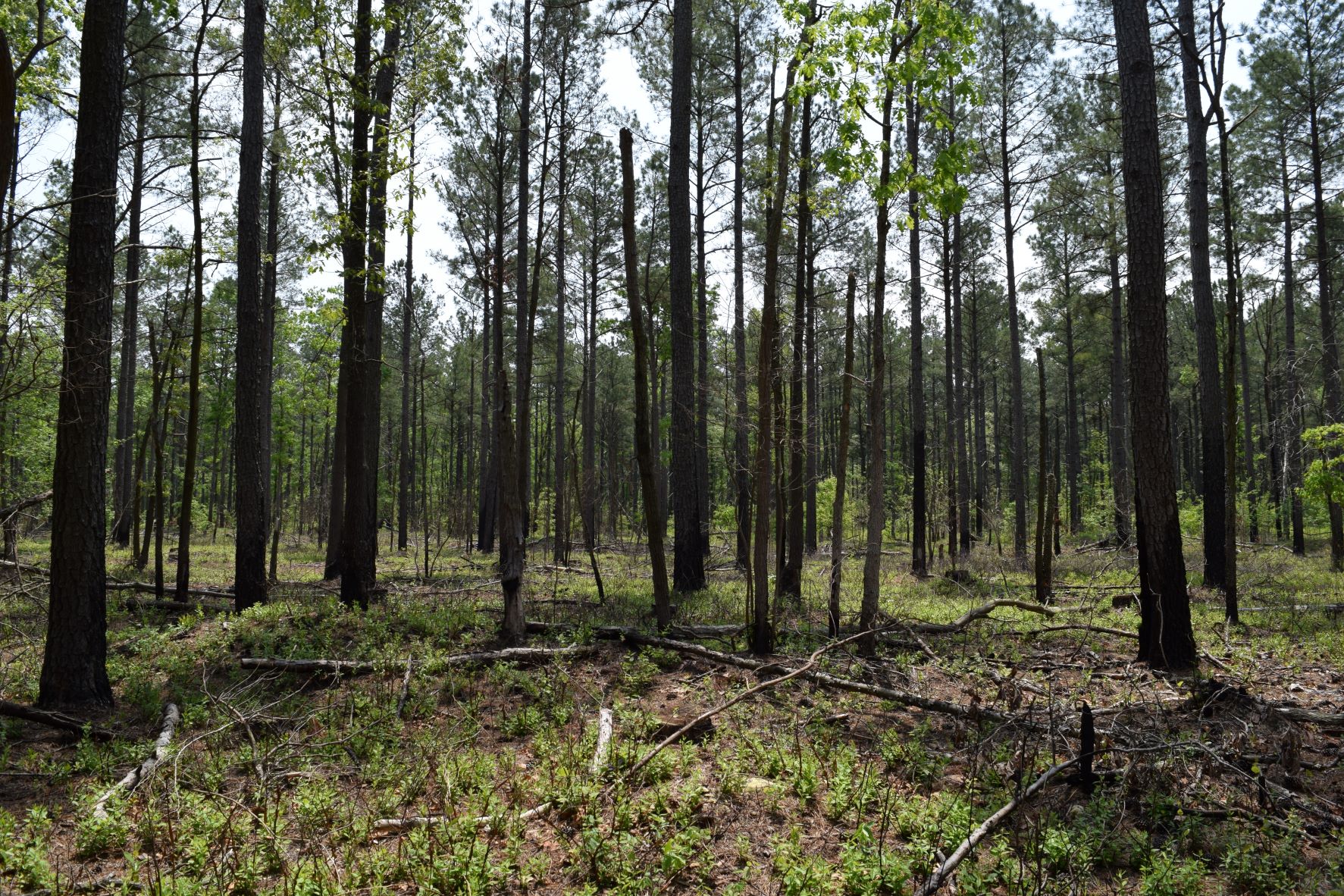
Protecting Lands & Waters
TNC maintains a number of public and private preserves in Delaware, showcasing a range of ecosystems. With your help, we have protected more than 30,000 acres across Delaware since 1990.
TNC is also a founding member of the Delaware Land Protection Coalition (DLPC), a consortium of organizations working to expand land conservation by identifying new sources of funding for land conservation, increasing partnerships with the state, working collaboratively with each other on projects. DLPC members include: Delaware Center for the Inland Bays, Delaware Wild Lands, the Kent County Conservancy, Ducks Unlimited, the Delaware Nature Society, the Sussex County Land Trust, Preservation Delaware, the Native Species Council and representatives from New Castle and Kent Counties.
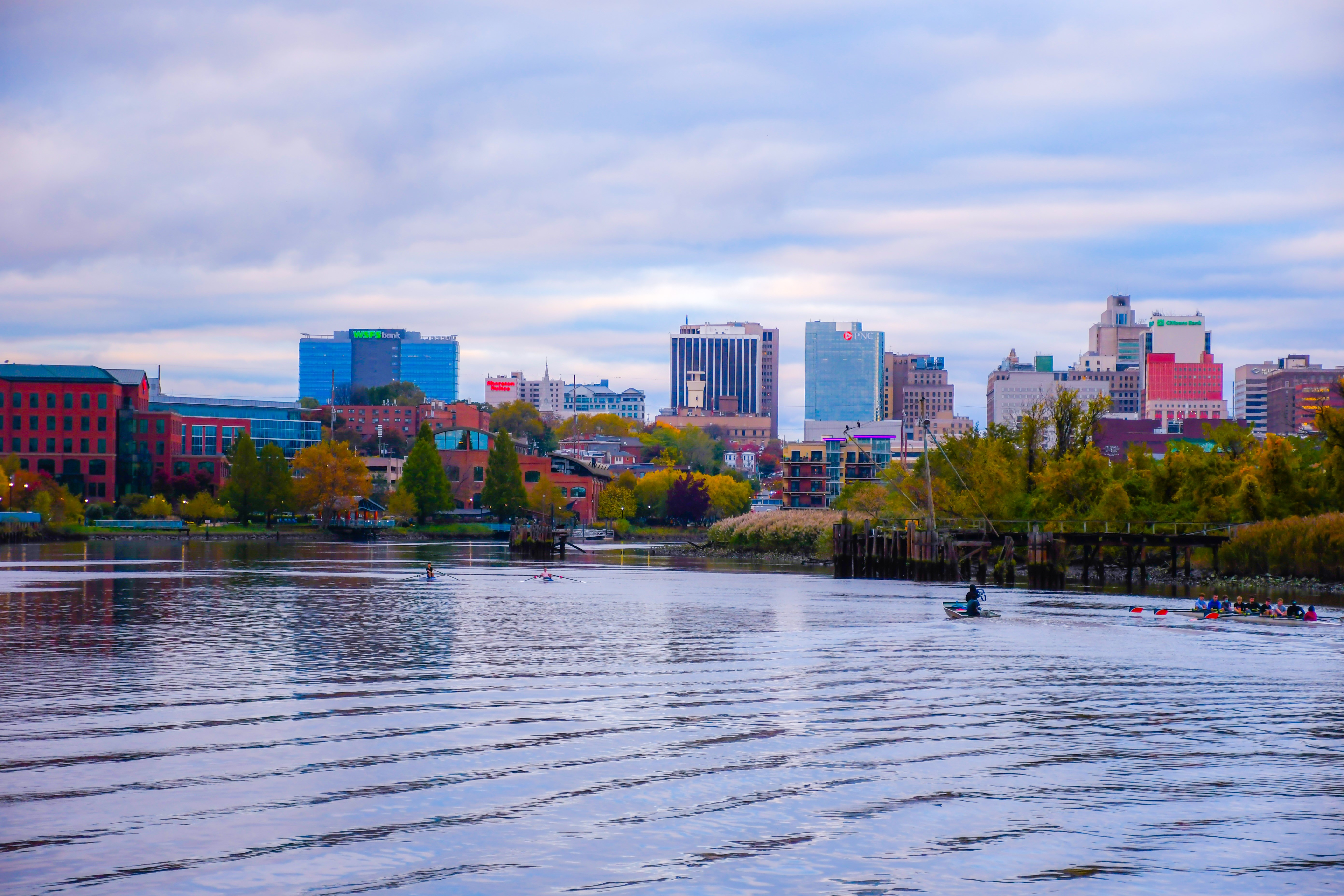
Healthy Cities
TNC has established a global cities program and a network of 24 urban conservation programs in the U.S. with the goal of changing the relationship between cities and nature. We know using natural solutions to address many of the challenges facing urban areas can create more livable communities and a world where people and nature thrive together.
We are also working to inspire the next generation of environmental stewards and engage residents in citizen science research to improve water quality and the health of urban forests via the Stream Stewards program. Finally, we are working with the city and community partners to develop policies that tackle the challenge of making Wilmington a more sustainable place to live.
Learn more about our urban conservation work in Delaware.
Advocacy Spotlight
A monthly feature highlighting thought leaders and newsworthy developments in the Delaware policy space.
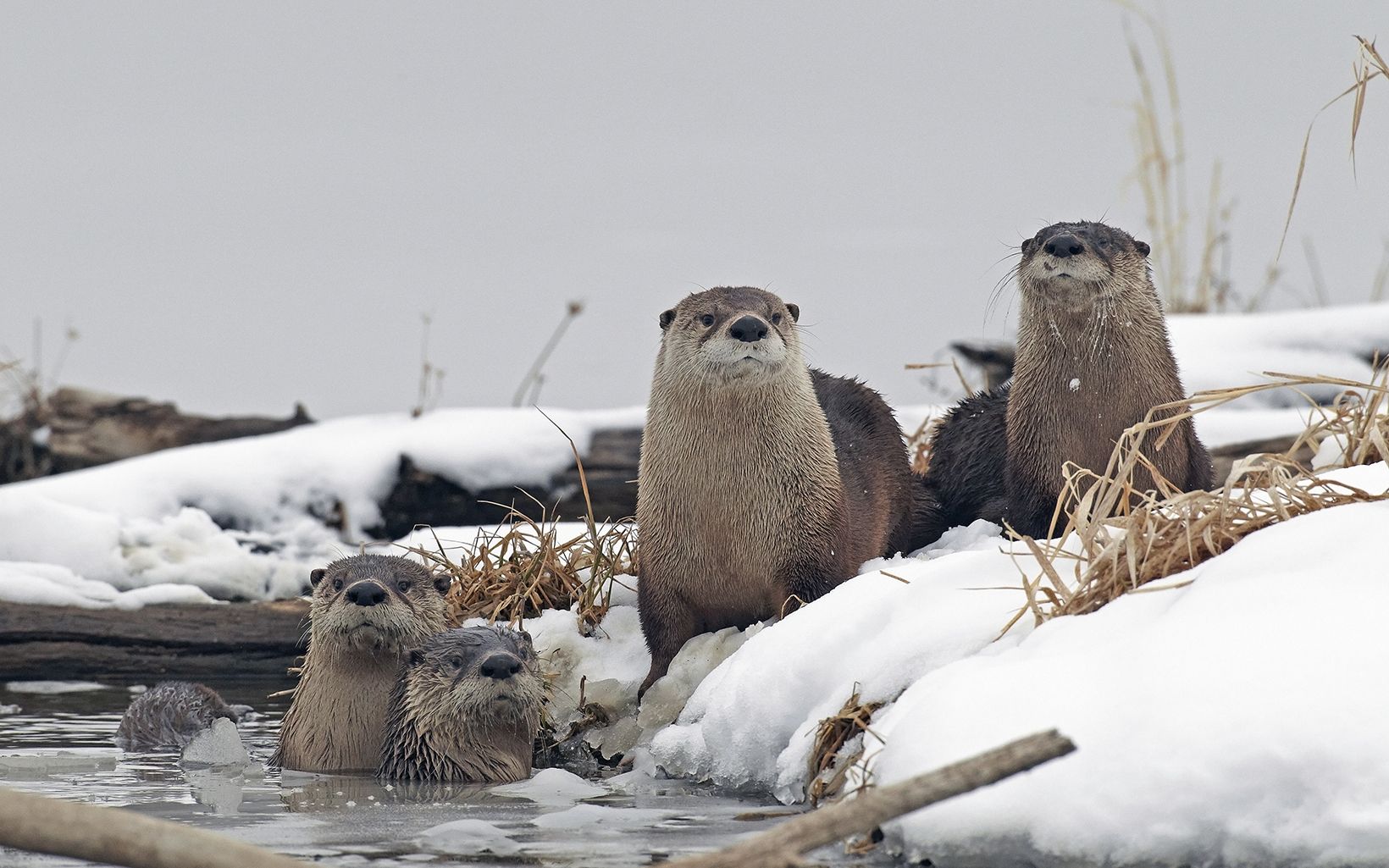
February 2026
A Season of Hope
Winter 2026 is here. It is hard to believe another year has come and gone and that we are already a month into the new year.
Winter can make it harder to hold on to the positive. The days are short, the sun is scarce and spring growth can feel far away. And yet, winter has its own joys. The stillness in the air, the occasional blanket of snow, the comfort of a warm blanket or a hot cup of coffee and, perhaps unexpectedly, a plan for Delaware’s climate.
On January 7, the Delaware Department of Natural Resources and Environmental Control (DNREC) released the Delaware Climate Change Action Plan, a statewide roadmap for addressing climate change. The plan, Delaware’s first since 2021, lays out goals, strategies and actions to reduce emissions while also preparing communities and natural systems for climate impacts.
“Positive” and “climate change” are not words we often hear together. But at The Nature Conservancy, we believe deeply that action matters and that strategies to reduce the impact of climate change are within reach.
Starting in 2024, DNREC sought broad public input while developing the climate plan, and TNC scientists and policy staff answered the call. While reducing greenhouse gas emissions remains essential to lowering long-term climate risk, Delaware’s plan goes further by recognizing the power of nature and smart land use decisions as part of the solution. It calls for such actions as:
- Preserving and protecting wetlands to help reduce flooding and increase carbon capture
- Supporting inland marsh migration so vital coastal ecosystems can move as seas rise
- Making thoughtful land use decisions that avoid development in high-risk areas and expand protected lands
What’s Next
The Climate Action Plan is just that, a plan. But it’s clear recognition that conservation and thoughtful land use policy are a critical step toward a more resilient Delaware.
Now comes the work of turning ideas into action. DNREC has called for the implementation of policies and programs that strengthen Delaware’s resilience, protect communities and safeguard nature. TNC will be there every step of the way, working with partners, communities and decision makers to help turn this vision into lasting impact.
Even in the quiet of winter, there is momentum and a reason for hope.
Advocacy Spotlight Archive
-
January always feels like a fresh start. As the General Assembly returns to Dover, TNC will be there, too, to advocate for strengthening protections for Delaware’s environment and building long-term climate resilience. This year, we are focused on policies that protect what makes Delaware special: its wetlands, wildlife, open spaces and vibrant communities, while preparing for the climate challenges ahead.
Protecting Natural Resources and Wildlife Habitats
Lawmakers have a timely opportunity to reinforce Delaware’s conservation legacy. A comprehensive state wetland protection program will prioritize restoring vulnerable landscapes, protecting exceptional value habitats, reducing flooding and improving climate resilience. Updating wildlife and habitat protections will help reduce threats to biodiversity and safeguard the public lands Delawareans cherish.
Increasing state open space funding reflects today’s property values and supports coordinated conservation efforts across state agencies and nonprofit partners. At the same time, defending progress on clean energy will keep Delaware on a path toward reduced emissions.
Advancing Climate Adaptation and Community Resilience
Delaware communities are already feeling the effects of sea level rise and stronger storms. This session, we are urging strategic investments in local climate adaptation planning and in the state technical assistance that counties and municipalities need to update their comprehensive plans.
We also support higher standards for climate resilience in planning, zoning and development, and reforms that help guide public investments away from areas most vulnerable to climate impacts. Modern land use tools can also support walkable and bikeable communities, protect critical habitat, direct growth to existing areas and steer new development away from flood-prone areas.
As the new year begins, we look forward to working with legislators, partners and communities to advance smart and science-based policies that protect Delaware’s lands, waters and people. January is a time for renewed focus and together we can make meaningful progress in the 2026 legislative session.
-
As the days grow shorter and winter settles over our marshes, forests and bays, we look back on a year of policy progress and offer our gratitude for your commitment to stewardship. The turning of the season reminds us that protecting Delaware’s natural heritage is both a responsibility and a gift. To all who stand with us in this work, we extend our deepest appreciation and warm wishes for a season of rest and renewal.
January 2025: A New Chapter in State Leadership
The beginning of Governor Meyer’s administration opened an important moment for conservation. TNC staff served on the Governor’s Transition Team and advocated for several key priorities that were reflected in the Governor’s Transition Final Report:
- new freshwater wetlands protections
- increased open space funding
- stronger climate adaptation planning and land use coordination
- strategies to reduce flood risk and prepare for sea-level rise
- planning to address saltwater intrusion on agricultural lands
These commitments give shape to a future where Delaware’s land and water remain resilient and life sustaining.
July 2025: State Policy Wins
The 2025 General Assembly delivered meaningful progress for conservation, climate resilience and community health:
- $10 million for DNREC Open Space, preserving natural landscapes and reducing flood risk
- $6.4 million for cover crops, strengthening soil health and farm resilience
- $3 million for brownfields cleanup, restoring contaminated properties and reinvesting in communities
- updated environmental fees and fines, improving enforcement, particularly in overburdened areas
- statewide clean energy access, expanding reliable clean energy options in all three counties
- defended clean energy progress, successfully stopping attempts to weaken Delaware’s clean energy laws
Celebrating Wildlife and the Wonder of Migration
With leadership from Senator Stephanie Hansen and the voices of students across Delaware, two new state symbols have now been chosen:
- Blue Dasher, Delaware’s State Dragonfly
Selected by more than 900 students, a shimmering sign of thriving wetlands and wild beauty - Red Knot, Delaware’s State Migratory Bird
A traveler of nearly 9,000 miles, sustained by the ancient horseshoe crab and the rich shores of the Delaware Bay
These species remind us that our work reaches far beyond our borders and into the arc of global life.
October 2025: Advocacy Day in Washington, DC
At The Nature Conservancy’s Capitol Hill Advocacy Day, our Delaware team, joined by national colleagues who also call this state home, met with our Congressional delegation to champion critical federal investments, including
- Land and Water Conservation Fund, which invested $2.9 million in Delaware last year
- NOAA coastal resilience programs essential to wetlands, bays and storm preparedness
- FEMA and DEMA hazard mitigation and BRIC funding supporting safer, more resilient communities
- Department of Defense REPI funding, strengthening coastal resilience near strategic military areas
We are grateful to Senators Coons and Blunt Rochester and their staff and to Delaware TNC trustees Rich Innes and Sophia Smecker, whose stories of community planning, bird migration and coastal stewardship carried the message of why this work matters.
November 2025: $20 million Proposed for State Open Space Funding
Each year, TNC and our partners advocate for strong state investment in open space. These funds do not go to TNC directly but enable Delaware to protect forests, wetlands and other natural areas that might otherwise be lost to development. State dollars also help leverage federal and private funding, multiplying the impact of every public investment.
This year marked an important milestone. Under the new leadership of the Department of Natural Resources and Environmental Control (DNREC), Secretary Greg Patterson proposed $20 million for Open Space funding in DNREC’s upcoming budget request. This is the first meaningful increase put forward at this stage in recent memory. While there is still a long way to go before a final budget is approved, we are encouraged by this early signal of support and grateful to Secretary Patterson for recognizing the need to strengthen Delaware’s open space investments.
December 2025: A Closing Reflection
As we approach a new year and the promise it carries, may we continue to care for the places that care for us. Thank you for all you do to protect them. Wishing you a peaceful season and a hopeful beginning to 2026.
-
Connecting Policy to Place: Delaware’s Voice in Washington
As Delaware faced the lingering warmth of a late-starting fall in October, a team of TNC board members and staff traveled to Washington, D.C. for Advocacy Day, carrying stories from the coastlines, marshes and communities we work to protect.
The U.S. Capitol complex is vast. It can take 20 to 30 minutes to get from one side of the Hill to the other, including security, but the welcome was warm whichever office we visited. Delaware’s congressional delegation remains a steadfast ally for conservation and climate resilience.
Despite the challenges of the ongoing federal shutdown, our meetings were productive. We met with Delaware’s full delegation—Senators Chris Coons and Lisa Blunt Rochester and the staff of Representative Sarah McBride—one of only six states represented by three members of Congress. We were fortunate to have face-to-face conversations with both Senator Coons and Representative Blunt Rochester (we met in person with Representative McBride in the summer), and we are deeply appreciative of all three congressional members and their staffs.
Our discussions centered on the federal programs that make resilience real for Delaware: the Land and Water Conservation Fund, NOAA’s Coastal Resilience Grants, FEMA’s Building Resilient Infrastructure and Communities (BRIC) initiative and the Department of Defense’s REPI program. These programs do more than fund projects; they restore marshes that buffer towns from flooding, reinforce infrastructure against stronger storms and protect habitats that sustain both wildlife and people. Together, they help safeguard the livelihoods, heritage and safety of Delawareans and extend the life of our coastal communities.
Our Delaware team, board members Rich Innes and Sophia Smecker, Executive Director Lori Brennan, Director of Conservation Keith Fisher and I were also joined by national and global colleagues from across TNC who call Delaware home. Rich shared lessons from Lewes on how thoughtful planning protects people and open space. Sophia spoke about the migration of shorebirds along the Delaware Bay and how the same public coastal lands that are vital to their journey are also facing the threats of sea-level rise.
These conversations were more than simply TNC advocating for vital federal programs; they were reminders of what’s at stake. Advocacy Day reaffirmed that protecting nature is about more than conserving land; it’s about protecting home for all who depend on it.
To learn more about Advocacy Day or TNC’s policy work, contact Emily.Knearl@tnc.org.
-
At Milford Neck Preserve, rare species are showing us what’s possible when we restore nature. Beneath the rustle of marsh grasses, the elusive call of the black rail carries through the air. Once thought to be disappearing from the region, this federally threatened bird has found a safe nesting place at the Milford Neck Preserve in Delaware. Its return is more than a rare discovery—it’s a sign of hope.
This didn’t happen by chance. For years, with your support, conservationists have worked to bring balance back to these landscapes. Through reforestation, invasive species removal and the careful use of prescribed fire, TNC has been healing the land and restoring the natural rhythms that wildlife depend on. Step by step, the results are becoming clear. Rare plants like the Appalachian quillwort and nine other amazing species found in Delaware and globally rare fireflies are beginning to brighten our summer nights once again.
Each of these stories—whether it’s the return of a bird, the spark of a firefly or the resilience of a plant—reminds us that conservation is not only about protecting what remains. It’s about creating the conditions for life to flourish again. When we choose to steward the land with intention, nature responds with resilience.
At TNC’s Milford Neck and other preserves, the lesson is clear: with care and persistence, the land heals. And when the land heals, life returns. Learn more about the places we protect in Delaware and find which you can visit.
-
Fall in Delaware arrives with a quiet kind of magic. The air turns crisp, the scent of woodsmoke drifts through small towns and the landscape becomes a painter’s palette—scarlet maples, golden oaks and the deep purples of sweetgums. In the marshes and along the bays, great flocks of snow geese and sandpipers gather, their calls carrying on the wind as they rest along the Atlantic Flyway. Deer move more cautiously through woodlots, foxes grow their winter coats and the cycle of preparation is in full swing.
It’s a reminder that every season has its work. For The Nature Conservancy in Delaware, autumn is when we turn our attention to preparing for the state legislative policy season ahead. The General Assembly returns in January 2026, and this fall is about groundwork—meeting with legislators, shaping ideas into bills and refining our priorities so we can hit the ground running when session begins. Our federal and county/local engagement, however, is a year-round effort, ensuring that conservation priorities remain on the table no matter the season.
The policies we work on—whether it’s protecting forests that blaze with color each fall, safeguarding wetlands that shelter migrating birds or advancing climate resilience strategies—are the framework that allows these natural rhythms to continue. Just as wildlife uses this season to prepare for winter, we use it to prepare for the decisions that will shape Delaware’s state landscapes for generations.
So as we walk under canopies of red and gold, it’s worth remembering that the beauty we enjoy now depends on choices we make together. And this season, our work is about ensuring that those choices keep Delaware’s natural heritage strong for every season yet to come.
-
As the clock neared midnight on June 30, chances are just about everyone connected to the General Assembly was still inside Legislative Hall. The final night of session is a marathon—often stretching late into the night or even the early hours of July 1—as lawmakers wrap up their work before the six-month recess begins. It’s a night of last-minute negotiations and the final push to get key bills across the finish line.
The 2025 General Assembly session brought meaningful wins for land, water and wildlife protection in Delaware:
- $10 million for DNREC Open Space Funding—Continuing the state's investment in preserving natural landscapes and protecting wildlife habitat.
- $6.4 million for Cover Crop Funding—Supporting soil health and farm resilience.
- $3 million for Brownfields Cleanup—Reinvesting in communities by addressing legacy pollution and revitalizing contaminated land.
- DNREC Fee & Pollution Fine Modernization—Updating decades-old environmental fees and fines to strengthen permitting and enforcement—particularly in communities most impacted by pollution.
- Statewide Clean Energy Access—Setting the stage for new clean energy access across all counties.
Celebrating Wildlife
This year, the General Assembly designated two iconic species as the official dragonfly and migratory bird of Delaware:
Blue Dasher: Chosen by more than 900 students, the blue dasher (Pachydiplax longipennis) is now Delaware’s official state dragonfly. Known for its striking blue body and iridescent wings, this small but vivid insect is often spotted near healthy ponds, wetlands and slow-moving streams. As a predator of mosquitoes and other pests, its presence is a positive sign of ecosystem health—a true harbinger of environmental balance.
Red Knot: The red knot (Calidris canutus rufa) is now Delaware’s official migratory bird. This remarkable long-distance traveler journeys up to 9,000 miles each way from Tierra del Fuego at the southern tip of South America to the Arctic Circle. Every spring, thousands stop along the Delaware Bay to refuel on the nutrient-rich eggs of the horseshoe crab—a prehistoric species that spawns on Delaware’s shores. This critical feeding stop helps sustain one of the longest migrations in the animal kingdom.
Looking Ahead to 2026
The General Assembly returns to Dover in January 2026, and we’re already working with legislators and partners to build another strong conservation agenda. Our top priorities include:
- Advancing new protections for freshwater wetlands
- Securing increased state investments in open space preservation
- Supporting wildlife conservation and climate-smart land use planning
- Championing cleaner air and water
Together, we can continue building a more resilient, vibrant Delaware—for people and nature.
-
June is World Ocean Month. In Delaware, TNC is celebrating the vital ecosystems that make up the iconic Delaware Bayshore. These coastal areas are facing an existential threat from sea-level rise brought on by climate change, putting biodiversity and human communities at risk. Recent non-partisan polling found that 89% of Delawareans support protecting more coastal wetlands and forests in the First State, and more than 60% are concerned about these impacts and believe that more action is needed.
Developed over the course of two years, TNC’s Coastal Resilience Roadmap is a guide to a healthy future for the Bayshore. It outlines strategies for residents, conservation practitioners and agencies to implement in order to support a more sustainable future for the First State’s coastal habitats and communities.
The roadmap incorporates extensive feedback from Bayshore residents and identifies key strategies based around four main pillars:
- Protecting coastal habitat migration space
- Enhancing and restoring the ecological function of coastal habitats
- Increasing community resilience to coastal flooding
- Promoting climate-considerate policies.
-
Spring in Delaware: A Season of Renewal—and a Call to Action
Spring in Delaware is nothing short of magical. As the days grow longer and temperatures rise, the First State comes alive with the sights and sounds of nature reawakening. From blooming wildflowers to the calls of returning birds, it’s a season that reminds us just how special—and fragile—our natural world is.
One of my favorite signs of spring is the return of the osprey. These majestic birds, often seen soaring over Delaware’s waterways or nesting on platforms and utility poles, are a true conservation success story. The recovery in their numbers is a powerful example of what’s possible when we invest in nature—and a testament to the kind of progress we can achieve together.
Just like nature, our work in Legislative Hall is full of energy this time of year. With only 12 legislative days left, The Nature Conservancy is working closely with legislators and partners to ensure nature has a strong voice in Dover. It’s been a challenging year, filled with uncertainty, but we’re encouraged by the dedication of those who believe protecting Delaware’s environment is worth fighting for.
We’re focused on three key conservation priorities that will have a lasting impact on Delaware’s lands, waters, and communities:
Investing in Cover Crops and Healthy Soil
Healthy soil is the foundation of a strong and sustainable farm. Practices like planting cover crops help prevent erosion, improve water quality, and boost farm productivity. But these benefits don’t happen on their own—the Delaware Department of Agriculture and the Conservation Districts partner with farmers to put these practices in place. We’re advocating to continue state support to keep our soils healthy and our agricultural communities thriving.
Protecting Open Space for Future Generations
Open space is disappearing in Delaware at an alarming rate. As part of the Delaware Land Protection Coalition, we’re urging lawmakers to increase funding for land conservation. Currently, $10 million is allocated from the Realty Transfer Tax for land acquisition and property maintenance. That’s not enough to keep up with rising land costs. It’s time to rethink and reinvest—so that today’s and future generations can continue to enjoy the outdoor spaces that make Delaware special.
Strengthening Protections for Freshwater Wetlands
Covering nearly a quarter of Delaware’s landscape, freshwater wetlands are unsung heroes. They absorb floodwaters, filter pollutants, store carbon, and provide critical habitat for wildlife, including many threatened and endangered species. Yet Delaware is the only state in the Mid-Atlantic without its permitting program to protect non-tidal wetlands. With your help, we’re pushing for stronger protections that reflect how vital these ecosystems are to the health and safety of our communities.
Your voice helps make this work possible. Whether you speak up, share these priorities with friends and neighbors, or reach out to legislators, you are making a difference.
With just days left in the legislative session, we must keep the momentum going. Together, we can secure a brighter, healthier future for the lands and waters that make Delaware home.
Let’s keep nature moving forward. Thank you for standing with us.
For information on how to get involved, email Emily.Knearl@TNC.org.
-
This spring, The Nature Conservancy released its Delaware Bayshore Coastal Resilience Roadmap, which outlines strategies for residents, conservation practitioners and agencies to implement in order to support a more sustainable future for the First State’s coastal habitats and communities.
The roadmap development, which was funded through a grant from the Longwood Foundation, incorporates extensive feedback from Bayshore residents and identifies key strategies based on four main pillars:
- Protecting coastal habitat migration space
- Enhancing and restoring the ecological function of coastal habitats;
- Increasing community resilience to coastal flooding; and
- Promoting climate-considerate policies.
The below is from an interview with the Coastal Roadmap author, Will Helt, Delaware Director of the Oceans and Coasts.
What are the climate challenges facing the Delaware Bayshore?
Essentially, the climate forecasts say the Bayshore will get hotter and wetter. The part that we focus on is how the Bayshore can adapt to increased precipitation and rising sea levels. For example, the current state-level forecasts predict between 9 and 23 inches of sea level rise by the year 2050 and up to 5 feet by 2100.
What is the Delaware Coastal Roadmap?
The Delaware Bayshore Coastal Resilience Roadmap identifies strategies that, if implemented, will increase the resilience of the Bayshore’s coastal ecosystems and vulnerable human communities to the impacts of climate change.
What is TNC recommending?
Broadly, TNC recommends making way for water! In practice, this means maintaining space for seas to rise while facilitating ecologically important coastal habitats like tidal marshes to migrate and adapt to sea level rise, leveraging nature-based strategies that increase resilience to flooding in communities, and promoting climate-considerate policies at the state and local levels.
Why do we need both program and policy responses to sea level rise?
The Bayshore faces rising waters, habitat loss and growing community risks within a complex legal and regulatory framework. While programmatic strategies and projects are what TNC is historically known for, in our case with climate adaptation in Delaware, policy changes on the state and local level are necessary to achieve a more systemic change. For example, one effective way to preserve vital marsh migration corridors is through land protection, specifically by conserving open spaces that allow marshes to migrate inland as sea levels rise. At a broader scale, shifting land use policies to minimize new development in vulnerable coastal areas can reduce risk. To further support effective climate change response, it's essential to leverage diverse government funding opportunities, advance key legislative measures, and advocate for actionable resilience strategies, especially for vulnerable communities, as well as modernize regulatory frameworks.
-
Conserving land is a critical strategy for preserving habitats, protecting water quality and combating climate change through carbon sequestration. This approach also enjoys broad public support—89% of Delawareans advocate for protecting forests and wetlands as a means of reducing greenhouse gas pollution. However, Delaware’s natural landscapes are increasingly under threat due to development pressures and the effects of a changing climate.
On March 20, the Delaware Land Protection Coalition and The Nature Conservancy (TNC) hosted the Fourth Annual Conservation Day at Legislative Hall. Conservation advocates from across the state gathered to meet with state legislators and the Governor’s office. The primary message this year was clear: safeguard state open space funding during these uncertain economic times. With potential reductions in federal funding and the subsequent impact on Delaware’s state budget, securing adequate appropriations for the Department of Natural Resources and Environmental Control’s (DNREC) land conservation program remains a pressing concern.
The coalition urged legislators to approve the full $10 million appropriation while also advocating for long-term funding increases. Additionally, we proposed expanding eligibility for state open space funding to include local agencies and nonprofits. Under the current structure, only state government entities can use state dollars for land conservation. By broadening access, nonprofits would have the opportunity to leverage private funding, thereby enhancing conservation efforts across the state.
A sincere thank you to all the land conservation advocates who lent their voices to Conservation Day. We look forward to welcoming participants to our Fifth Annual Conservation Day in 2026.
For further information on conservation initiatives and how you can get involved, email Emily.Knearl@tnc.org
-
Spring prescribed fire season is underway in southern Delaware through April 30th. The Nature Conservancy (TNC) will conduct controlled burns at the Ponders Tract/Pemberton Forest Preserve and Edward H. McCabe Preserve near the towns of Ellendale and Milton in Sussex County intermittently during favorable weather conditions through April 30.
Sussex County residents are advised that smoke may be visible during certain prescribed fire days. TNC and its local partners will communicate the timing of controlled burns as soon as possible via social media. Residents and media outlets should check TNC’s Facebook and Twitter/X channels for the latest information.
Prescribed fire plays a critical role in the health of Delaware’s ecosystems and the well-being of nearby communities by reducing vegetation build-up and mitigating the risk for large, out-of-control wildfires. In coordination with its partner agencies, TNC uses prescribed fire to maintain the health and resilience of the First State’s forests and grasslands.
Controlled burning encourages growth of native vegetation, increases biodiversity, minimizes the spread of invasive species and recycles nutrients back into the soil. The right fire at the right place at the right time will help improve habitat for threatened and endangered species.
Highly trained fire managers and Burn Bosses take numerous steps to ensure the safety of fire staff and the public by evaluating the type of vegetation within the burn area; establishing fire breaks and control lines; moderating the intensity of flame and smoke; and providing personnel and equipment to supervise and control the fire all the way from spark to extinguishing.
Prior to a burn, TNC staff notify the appropriate county Fire Board and coordinate with state forestry agencies and local officials around public awareness, staffing, and resources. Weather conditions are carefully assessed the day of a prescribed burn. In the interest of public safety, burning does not take place if weather conditions are not conducive.
Learn more about TNC's prescribed fire program in Delaware and Pennsylvania.
We Can’t Save Nature Without You
Sign up to receive monthly conservation news and updates from Delaware. Get a preview of Delaware's Nature News email



